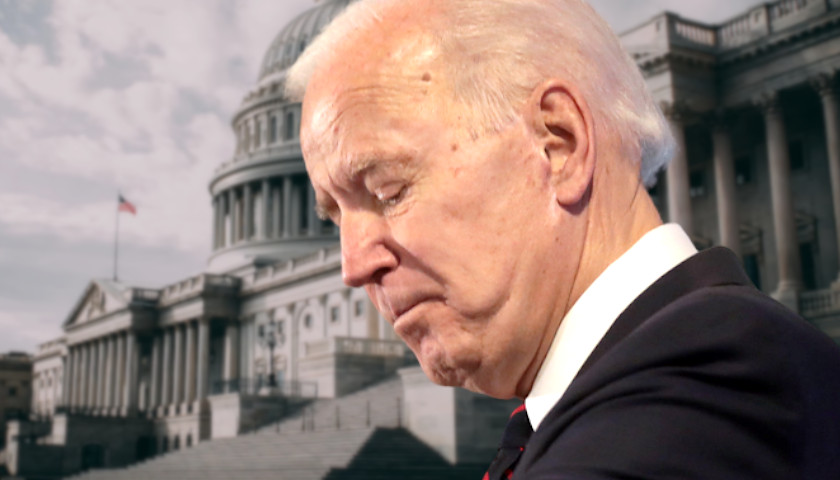by Robert Romano
Thirty-seven percent of Democrats and 62 percent of Independents say America is on the wrong track, according to the latest Reuters-Ipsos poll conducted from March 14 to March 15, signaling strong discontent among Democratic and Democratic-leaning voters headed into the Nov. 2022 Congressional midterms.
And that’s bad news for President Joe Biden, who continues to languish with very low approval ratings—averaging just 40.8 percent approval and a whopping 54.8 percent disapproval in the latest average of polls taken by RealClearPolitics.com.
In the last two Congressional midterm cycles of 2018 and 2014, former Presidents Donald Trump and Barack Obama were similarly registering discontent in the Reuters-Ipsos poll on the question of right-track, wrong-track.
In March 2018, 26 percent of Republicans and 67 percent of Independents said the country was on the wrong track. Trump and Republicans went on to lose 42 seats in the House of Representatives, but picked up two seats in the Senate, keeping control there.
Similarly, in April 2014, 39 percent of Democrats—Independents were mentioned in this poll—said the country was on the wrong track. Obama and Democrats went on to lose 12 seats in the House of Representatives and nine seats in and control of the Senate.
So, what we are seeing in 2022 matches pretty well with prior administrations’ performances in polls leading up to Congressional midterms. Whenever one party claims the White House, members of the opposite party will immediately begin telling pollsters that the country is on the wrong track. Republicans will generally oppose the direction of the country when a Democrat is in the White House, and vice versa.
Normally, in midterm elections dating back to 1906 through 2018, the party that occupies the White House usually loses on average 31 seats in the House, and about three seats in the Senate. If that happens, Republicans will easily reclaim Congress this year.
But where the difference is made in terms of Congressional midterms, certainly how passionate the opposition party is about voting certainly makes a difference, but also how disaffected members of the incumbent party are — which consistently results in them staying home when it comes time to vote. The degree of disaffection determines how badly the incumbent party tends to lose in the midterms.
And with 7.9 percent inflation that appears destined to go double digits, the disastrous U.S. withdrawal from Afghanistan that left hundreds of American citizens who are still stranded in the country and a failed legislative agenda that included not much else than trillions of dollars of too much spending, that disaffection will continue to cast a long shadow all the way to November.
– – –
Robert Romano is the Vice President of Public Policy at Americans for Limited Government.
Photo “Joe Biden” by Gage Skidmore. CC BY-SA 2.0.








